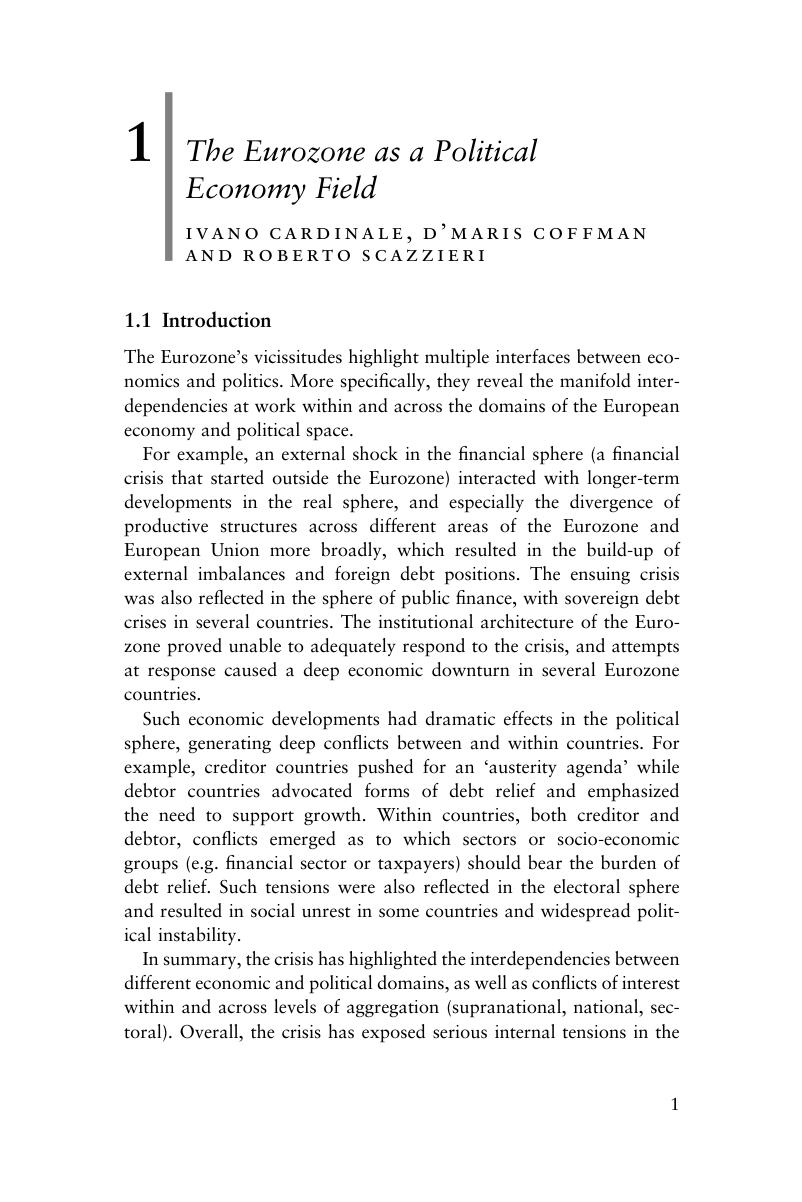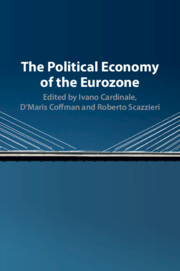Book contents
- The Political Economy of the Eurozone
- The Political Economy of the Eurozone
- Copyright page
- Contents
- Figures
- Tables
- Contributors
- Preface
- Acknowledgements
- 1 The Eurozone as a Political Economy Field
- Part I Comparative Historical and Institutional Perspectives
- Part II Multi-Level Interdependencies
- Part III Political Economy of Structural Governance
- Part IV Framing the Eurozone
- Index1
- Book part
- References
1 - The Eurozone as a Political Economy Field
Published online by Cambridge University Press: 31 October 2017
- The Political Economy of the Eurozone
- The Political Economy of the Eurozone
- Copyright page
- Contents
- Figures
- Tables
- Contributors
- Preface
- Acknowledgements
- 1 The Eurozone as a Political Economy Field
- Part I Comparative Historical and Institutional Perspectives
- Part II Multi-Level Interdependencies
- Part III Political Economy of Structural Governance
- Part IV Framing the Eurozone
- Index1
- Book part
- References
Summary

- Type
- Chapter
- Information
- The Political Economy of the Eurozone , pp. 1 - 34Publisher: Cambridge University PressPrint publication year: 2017

